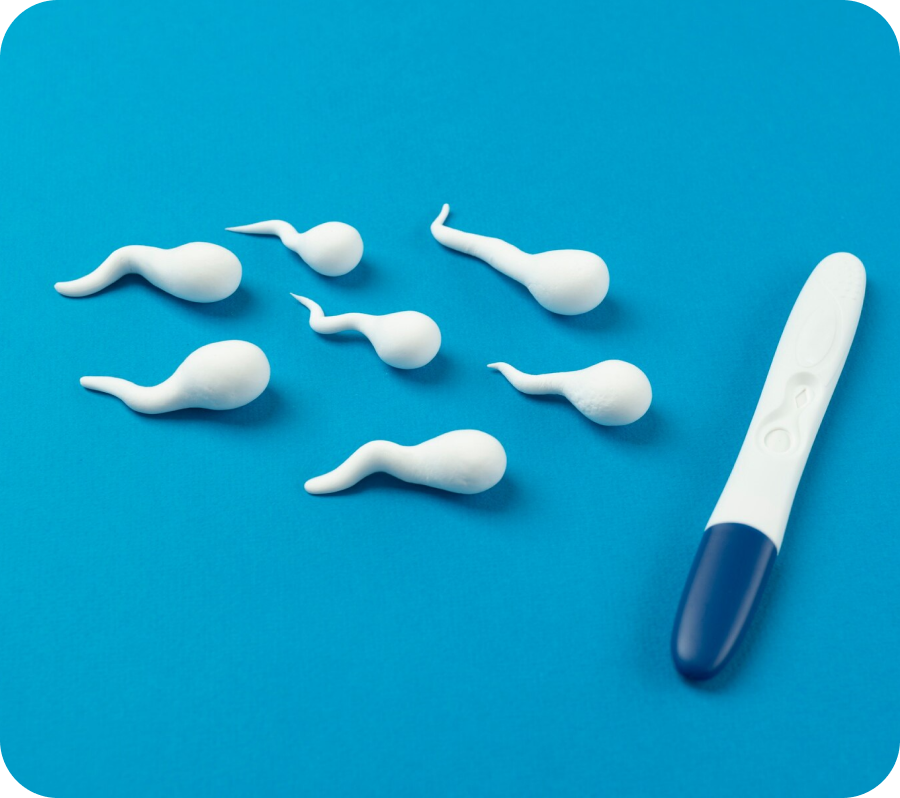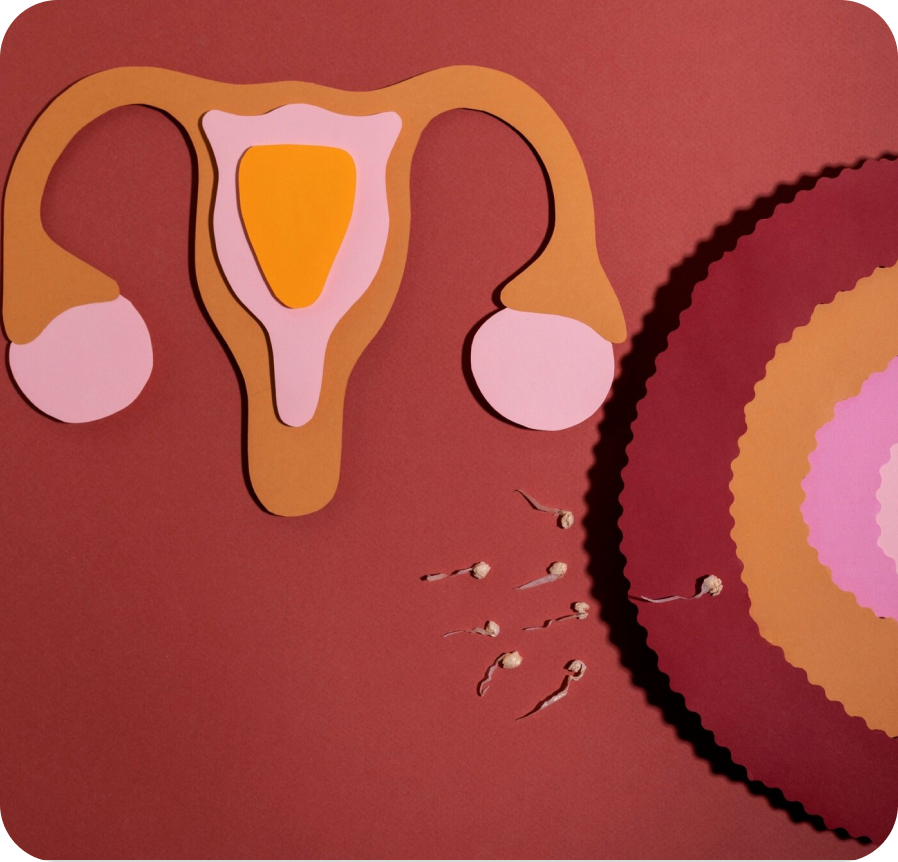Clinical Services
Delivering world class services in women’s health
Expert in Women's Health and Fertility Care
I’m a leading fertility specialist with expertise in assisted conception, menstrual disorders, and menopause management. Practices in the UK NHS and leads an endocrine genecology service. I perform advanced surgeries for subfertility and gynecologic conditions. My passion lies in providing individualized care for a broad range of women’s health needs.


Fertility and Assisted Conception
Facing difficulties conceiving can feel overwhelming. As a specialist in reproductive medicine, I offer complete fertility evaluations and advanced treatment options tailored to your personal journey to parenthood.
Infertility affects many couples and may involve ovulation issues, tubal factors, sperm abnormalities, or unexplained causes. Whether you’re just beginning to explore options or have been trying for some time, I provide clarity and solutions.
It is important to start with detailed testing including hormone evaluations, ultrasound scans, and semen analysis. This careful assessment helps identify potential challenges and determines the most effective approach for your situation.
My clinic offers the full range of fertility treatments from ovulation induction with careful monitoring to advanced procedures like IVF with ICSI when needed. For those requiring additional interventions, I provide options including fertility preservation, genetic testing, and surgical sperm retrieval.
With specialist expertise and modern laboratory facilities, I focus on creating individualized treatment plans with transparent guidance. My approach combines medical excellence with compassionate support throughout your journey.
Fertility check and Social egg freezing
For women seeking to evaluate their reproductive potential or preserve future fertility options, I offer comprehensive fertility assessment and evidence-based oocyte cryopreservation services. These medical interventions provide objective data about current fertility status and the opportunity to mitigate age-related fertility decline.
The fertility assessment involves quantitative measurement of ovarian reserve markers including anti-Müllerian hormone (AMH) and follicle-stimulating hormone (FSH) levels, combined with transvaginal ultrasonography for antral follicle count. These diagnostic measures are interpreted according to age-specific normative data, providing a scientific basis for understanding individual reproductive potential.
Elective oocyte preservation follows established medical protocols beginning with controlled ovarian stimulation using recombinant gonadotropins. Treatment response is monitored through serial hormonal assays and follicular tracking via ultrasound. Oocyte retrieval is performed transvaginally under sedation, followed by immediate vitrification using validated cryopreservation techniques that optimize post-thaw survival rates.
The biological rationale for fertility preservation stems from well-documented age-related declines in oocyte quality and quantity, with accelerated depletion typically occurring after age 35. Cryopreservation prior to this period allows preservation of gametes at their current developmental potential. Success rates are strongly correlated with age at time of cryopreservation, making earlier intervention statistically advantageous.
The initial consultation includes a thorough review of medical and reproductive history, presentation and interpretation of diagnostic findings, evidence-based prognosis discussion, and development of personalized recommendations. This structured approach ensures patients receive medically accurate information to support informed decision-making.


Male fertility
When conception proves difficult, male factors contribute to nearly half of all infertility cases. I provide comprehensive evaluations and targeted treatments for sperm abnormalities, hormonal imbalances, and reproductive dysfunction, helping couples overcome these challenges.
Male infertility may involve low sperm count, poor motility, abnormal morphology, or complete absence of sperm. These issues can stem from genetic factors, hormonal disorders, anatomical blockages, infections, or lifestyle influences. Many men feel frustrated when standard tests identify problems without offering clear solutions.
We begin with advanced semen analysis using WHO standards, hormonal testing (testosterone, FSH, LH), and when needed, genetic screening or scrotal ultrasound. This thorough evaluation pinpoints the underlying cause to guide effective treatment.
Treatment is tailored to each patient’s diagnosis. For hormonal imbalances, we use targeted medical therapy. Varicoceles may require minimally invasive repair, while obstructions might need microsurgical sperm retrieval. In severe cases, IVF+ICSI treatment may be an ideal solution. Lifestyle optimization forms an integral part of every treatment plan.
Ovulatory disorders and ovulation induction
For women experiencing irregular or absent ovulation, the journey toward conception or hormonal balance can feel uncertain and discouraging. Ovulatory disorders affect a significant proportion of women with fertility challenges, often stemming from hormonal imbalances, polycystic ovary syndrome (PCOS), hypothalamic dysfunction, or other underlying conditions. As a specialist in reproductive gynecology, I provide comprehensive, individualized care to help patients achieve regular ovulation and reach their reproductive goals.
Ovulation disorders manifest in various ways, from irregular menstrual cycles to the complete absence of periods. These disruptions not only impact fertility but can also contribute to hormonal symptoms such as mood fluctuations, acne, or unexplained weight changes. Many women facing these challenges feel frustrated by the unpredictability of their cycles or the difficulty in conceiving despite their best efforts.
For many patients, oral medications such as Clomiphene or Letrozole can effectively stimulate follicle development and promote regular ovulation. In more complex cases, carefully monitored injectable hormone therapies may be recommended. Throughout the process, I prioritize close monitoring through transvaginal ultrasounds to track follicle growth and optimize timing for conception, whether through timed intercourse or intrauterine insemination (IUI).
Beyond medical interventions, I recognize the importance of addressing lifestyle factors that influence hormonal health. Nutritional guidance, stress management strategies, and optimizing overall wellbeing can play a significant supportive role in restoring ovulatory function.


Polycystic ovary syndrome
Living with PCOS can feel overwhelming. The irregular periods, frustrating symptoms, and concerns about fertility and long-term health create unique challenges for every woman. Understanding these struggles and providing expert reproductive gynecological care tailored to your individual needs are key to help patients regain control of their health with confidence and clarity.
Many women with PCOS face irregular or absent periods due to hormonal imbalances, which can cause both physical discomfort and emotional distress. For those concerned about fertility, PCOS-related ovulation issues can make conception difficult. Through advanced fertility assessments and individualized treatment plans, including ovulation induction when needed, I strive to work closely with patients to maximize your chances of achieving a healthy pregnancy.
Weight management and metabolic health are common struggles, as insulin resistance often accompanies PCOS. Our approach combines medical expertise with nutritional strategies to improve your metabolism, support sustainable weight management, and reduce long-term health risks.
As a specialist reproductive gynecologist, I focus exclusively on women’s hormonal and fertility health. Rejecting the one-size-fits-all approach— treatment plan will be carefully crafted to align with patients unique physiology, personal goals, and lifestyle.
Heavy and irregular periods
Heavy or irregular menstrual bleeding (abnormal uterine bleeding) requires thorough evaluation and personalized management. I provide evidence-based assessment and treatment following current clinical guidelines to address both symptoms and underlying causes.
Diagnostic assessment includes detailed medical history, blood tests (for anemia, thyroid function, and hormonal levels), and pelvic ultrasound. For select cases, additional procedures like hysteroscopy or endometrial biopsy may be recommended to evaluate structural causes.
First-line therapy typically involves hormonal medications (oral contraceptives or progesterone) or a levonorgestrel-releasing IUD to regulate cycles and reduce bleeding. For more severe cases, non-hormonal options (tranexamic acid) or minimally invasive surgical procedures may be considered. Treatment is always tailored to individual needs, taking into account fertility plans and overall health.
Abnormal uterine bleeding may result from hormonal imbalances, structural issues (polyps, fibroids), or medical conditions. The treatment plan is based on the specific diagnosis, with the goal of normalizing cycles, improving quality of life, and preventing complications like anemia.
During your visit, we will review your symptoms, perform necessary testing, and discuss treatment options. Follow-up ensures optimal response to therapy, with adjustments made as needed.


Fibroids, endometriosis and pelvic pain
For patients with symptomatic uterine fibroids, endometriosis, or chronic pelvic pain, I provide comprehensive evaluation and evidence-based management tailored to individual needs. These conditions require precise diagnosis and personalized treatment strategies to effectively alleviate symptoms while preserving fertility when desired.
Accurate assessment begins with detailed history-taking and physical examination, followed by targeted imaging. Pelvic ultrasound serves as the first-line diagnostic tool, with MRI reserved for complex cases. For suspected endometriosis, diagnostic laparoscopy remains the gold standard, allowing both visualization and histologic confirmation.
Management options are tailored to each condition:
Fibroids: Medical therapy (GnRH agonists, selective progesterone receptor modulators), uterine artery embolization, or surgical options (myomectomy/hysterectomy)
Endometriosis: Hormonal suppression, excision surgery, or combined approaches
Chronic Pelvic Pain: Multimodal management including medical, physical therapy, and interdisciplinary pain management strategies
These conditions share common pathways of inflammation and neurovascular involvement, yet require distinct therapeutic approaches. Fibroid management focuses on size reduction and bleeding control, while endometriosis treatment aims to suppress ectopic implants. Chronic pelvic pain often benefits from a biopsychosocial approach addressing central sensitization.
My focus is on effective symptom control while preserving fertility options when desired.
PMS and Menopause
Hormonal fluctuations during the menstrual cycle and menopausal transition can significantly impact physical and emotional wellbeing. I provide evidence-based evaluation and management of premenstrual disorders (PMS/PMDD) and menopausal symptoms, with treatment tailored to each patient’s needs.
For premenstrual concerns, diagnosis involves prospective symptom tracking using standardized charts. Menopausal evaluation includes detailed symptom analysis and targeted hormone testing when indicated. Both assessments rule out other potential causes of symptoms.
Treatment options range from lifestyle modifications to medical therapy. For PMS/PMDD, this may include SSRIs or hormonal approaches. Menopausal management considers hormone replacement therapy when appropriate, along with non-hormonal alternatives. All recommendations balance efficacy with individual risk factors and preferences.
These conditions stem from the body’s response to hormonal changes – increased sensitivity to progesterone fluctuations in PMS, and estrogen deficiency in menopause. Management focuses on stabilizing these biochemical pathways while addressing symptom burden.
Our initial consultation includes thorough symptom review, discussion of treatment options, and development of a personalized plan. Follow-up ensures optimal response and adjustment as needed.


Private clinical practice
The LUNA clinic
I am one of the founders of the LUNA Clinic – London which is a highly specialised clinic caring for women with endocrine gynaecological disorders. At LUNA we care for women with polycystic ovary syndrome, irregular periods, ovulatory disorders, infertility, and menopause.
We offer face to face consultation on Harley Street – London and in Epsom – Surrey. We also offer virtual online consultation.
For more info please visit: www.thelunaclinic.com
For private consultations please call our secretary on: (+44)02031376093
St Anthony Spire Hospital
I run weekly clinics and operating theatre lists at St Anthony Spire Hospital in Worcester Park caring for both self-funding and insured patients. For appointments, please visit my page on:
Ashtead Hospital - Ramsay Health:
I run a dedicated menopause and fertility clinics at Ashtead Hospital. For appointments, please visit my page on:
I care for patients insured by: (AXA، Aviva، Vitality، Bupa، Cigna، Healix، WPA)
For enquiries, please call my private secretary (+44)02031376093


